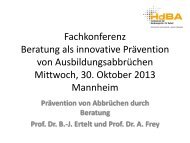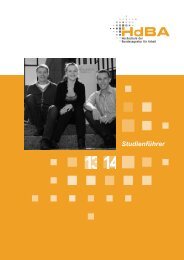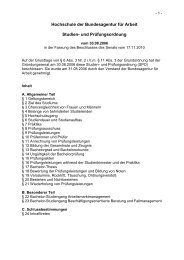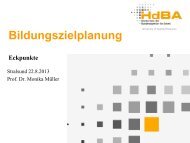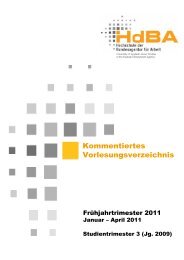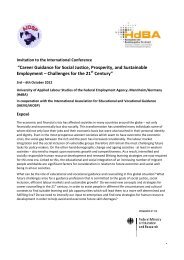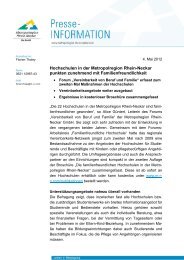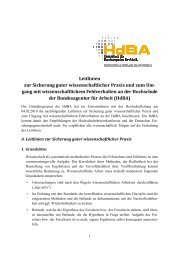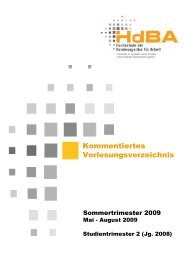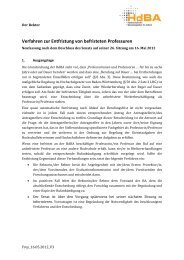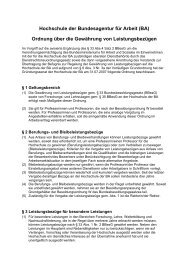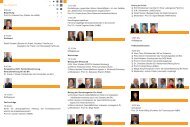Brain Drain - Hochschule der Bundesagentur für Arbeit
Brain Drain - Hochschule der Bundesagentur für Arbeit
Brain Drain - Hochschule der Bundesagentur für Arbeit
Create successful ePaper yourself
Turn your PDF publications into a flip-book with our unique Google optimized e-Paper software.
�����������������������������������������<br />
���������������������������������������<br />
�<br />
�<br />
2.2 Unit 1: Cultural and Transnational Factors of Intercultural<br />
Management<br />
A solid fundament of intercultural theories – such as cultural socialisation theories<br />
and processes of enculturation – create a sensibility for areas of conflicts between<br />
own core beliefs and foreign values. Acquaintance of scientific approaches of<br />
contrasting a culture with another one – e.g. Trompenaars´ ‘seven dimensions of<br />
culture’ – yield to a value-free top view on different cultures.<br />
2.3 Unit 2: Intercultural Management – Practical Aspects<br />
Transfer of theoretical knowledge of Unit 1 into different practical methods not only to<br />
inform about selected cultures but also to cope with typical intercultural difficulties:<br />
acquaintance of means of selected cultures, elaboration of cultural diversities and<br />
demonstration of their effects on the personal and familiar areas of life as well as the<br />
identification of the difficulties and problems which result from the intercultural life<br />
cycle lead to approaches of elaboration solutions which can be taken on in<br />
counselling interviews.<br />
2.4 Unit 3: Counselling Structure<br />
This Unit targets on structure and techniques of professional counselling.<br />
Approaching systematic interview methods a survey of counselling phases is given to<br />
the participants: assessment, problem identification and formulation, goal setting,<br />
development of means, implementation and evaluation. The individual situation of the<br />
client in respect of his personal, familiar, professional and social situation is focussed<br />
here to sharpen the counsellor’s senses for weaknesses and strengths of the<br />
individual.<br />
2.5 Unit 4: Development of Case Management<br />
Case Management (CM) means:<br />
� Process management (professional structure of activities)<br />
� Knowledge management (use of instruments, intranet, internet)<br />
� evaluation management (effectivity and efficiency management, validation by<br />
exploitable parameters)<br />
CM is accomplished by the following phases:<br />
� Problem description/resource analysis<br />
� systematic formulation of hypothesis referring to the reasons for problems<br />
� Target planning<br />
� Action planning<br />
� Evaluation, effectivity and efficiency analysis – documentation<br />
74



